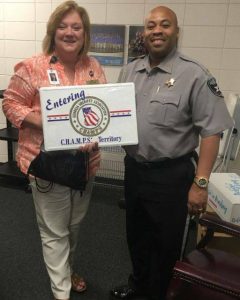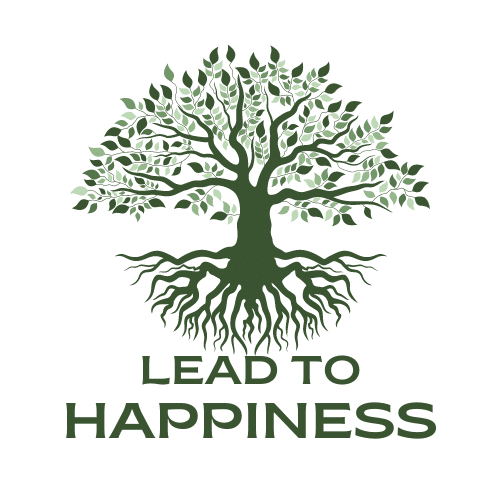When our school started C.H.A.M.P.S., I didn’t think much of it. Another assembly when someone lectures for an hour on choices and consequences. Everyone has heard it.
But then Deputy Harris arrived.
He was unexpected. He wasn’t rigid or uninteresting. He read without a script. He treated us like genuine individuals with real difficulties. Maybe he knew some of us were headed home to mayhem we’d never confess.
He shared tales every Thursday. Real things, not terrifying “this could be you” crap. About his brother’s involvement. He nearly quit the academy. He nearly didn’t leave his area either.
After the presentation, they took a photo with the new school sign, “Entering C.H.A.M.P.S. Territory.” I scarcely noticed until he drew me aside after the picture.
He responded, “You have more going on than you show. Don’t wait for help. You’re clever enough to steer.”
I was surprised and didn’t respond.
He gave me something little, apparently unimportant.
I understood it later that night.
I haven’t told anybody I kept it.
A little silver whistle keychain was given to me by Deputy Harris. It appeared like a carnival souvenir, but it was different. Side engraving read: Sound Your Call. I first believed it was a motivational trick professors use to encourage you without accomplishing anything useful. In my room alone that night, turning it over in my hands, it struck me harder than intended.
Deputy Harris saw me. Actually saw me. Not just the shy youngster who kept unseen because it was safer to fit in, but the genuine me. He worried about money, bills, and if Mom would come home late again smelling like cigarettes and disappointment. The one who wanted to achieve something big but felt too little.
I avoided thinking about responsibility, bravery, and transformation, yet that whistle symbolized them. Despite not knowing what it represented, I opted not to throw it away.
Life returned to normal after a few weeks. School dragged on, Mom worked long hours, and I spent my leisure time helping her around the house or completing schoolwork alone. But sometimes I stared at the whistle on my desk. It kept bothering me like it had unfinished business. I ultimately put it in my pocket and carried it to school over lunch.
I discovered why later that day.
I saw a bunch of youngsters crowded outside the corner shop on my way home from the bus stop. Body language made me stop, even though they weren’t buddies and hardly recognized me. Malik, a youngster, shouted louder. He had a crimson face and tight hands. Another smaller, younger-looking youngster was stopped in front of him, crying.
I paused, wondering what to do. This wasn’t my battle. I hardly knew them. I just wanted to keep going and pretend not to see. But then my fingers touched the whistle in my pocket, and Deputy Harris’s voice came to me: Don’t wait for help.
Before second-guessing myself, I acted. “Hey,” I shouted, shaking. Everyone looked at me, even Malik. Nobody spoke for a time. Malik sneered. What you want?
“I don’t know what’s going on here,” I responded, trying to sound bolder than I felt, “but whatever it is, it’s not worth it. Do not disturb him.”
Malik laughed with a sharpness. Please mind your business. You were not asked.”
I tightened my pocket whistle grasp. My heart was beating so rapidly I feared it might explode. Instead of retreating, I advanced. “Maybe nobody asked me,” I answered, startling myself with my firm voice. “But someone must speak up.”

I considered Malik lunging at me. He shook his head, grumbled, and left, the rest following. The younger youngster looked at me wide-eyed before saying, “Thanks,” and hurrying away.
I stood there for a long time, breathing deeply, gripping the whistle like it rescued me. Maybe it had.
A version of what occurred circulated swiftly. By Monday morning, half the school knew I stood up to Malik. Some mocked me as bold or dumb, depending on their attitude. I got a nod from others, like a medal of honor. Personally, I didn’t care. The important thing was that I did something—not for attention, but because it felt right.
Later that week, Deputy Harris found me at lunch. Before speaking, he grinned knowingly as he approached my table. His voice was quiet yet forceful when he talked. Heard you whistled.”
Confused, I blinked at him. “I didn’t blow it.”
He remarked, “You didn’t need to,” drawing up a chair. Sometimes we don’t hear our loudest sounds. We act on them.”
After that, we spoke about Malik, fear, and how standing up might mean being rejected or ridiculed. He reminded me that bravery meant doing the right thing despite fear. He said, “Keep using that whistle, Marley,” before leaving. Even in your head.”
Over the following six months, I saw chances to speak out, assist out, and make a difference everywhere. Volunteering at the community center or peer mentorship were significant. Some were minor, like soothing an angry student or clearing up park garbage. I carried the whistle every time, reminding myself of my vow to Deputy Harris and myself.
A letter arrived about a year after C.H.A.M.P.S. ceased. It was handwritten by Deputy Harris and addressed to me. Inside, he thanked me for encouraging him and said that he had been elevated to department leadership. His picture next to the station’s new Sound Your Call Community Outreach Program sign was included to the letter.
Reading the message made me cry. I unwittingly shaped Deputy Harris’s life as well as mine. And then I learned something profound: bravery is about producing ripples that can become waves, not simply noise.
Life will always provide obstacles that test our willpower and force us to choose who we are. Even if the world is watching, taking one step forward might be courageous. That little whistle taught me that small acts can have a great effect and that genuine power comes from thinking we can do more than we imagine.
My challenge: Find your whistle. Hold onto whatever reminds you of your capacity to change. Use frequently. Remember that you’re altering yourself as well as the world.
If this story touched you, tell someone who needs to hear it. Let’s show that bravery comes in many forms and that we can all answer our call.

